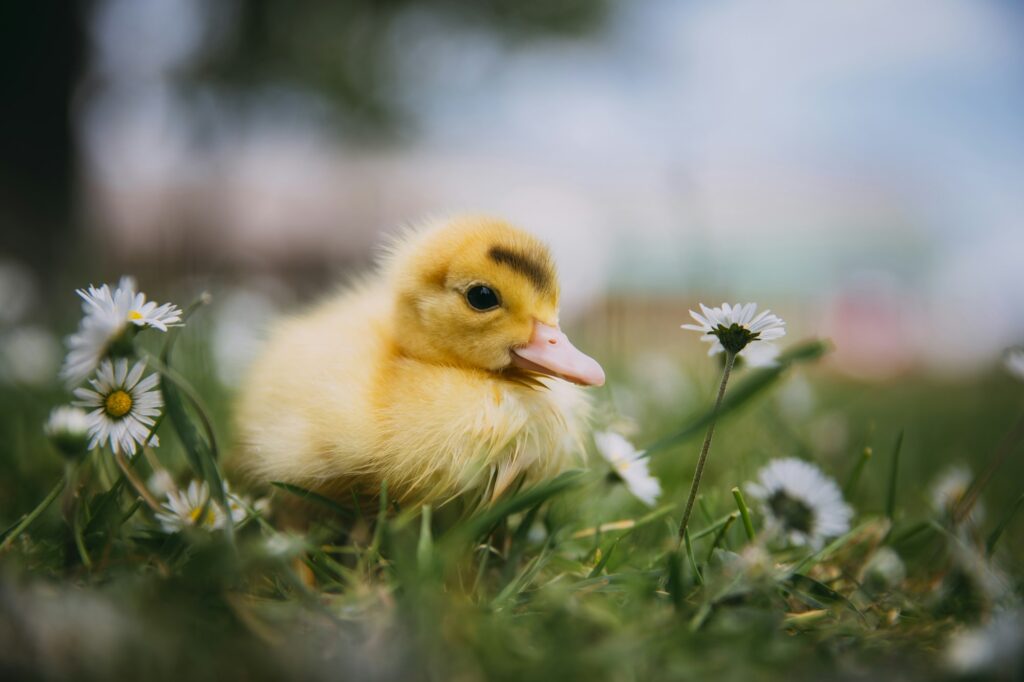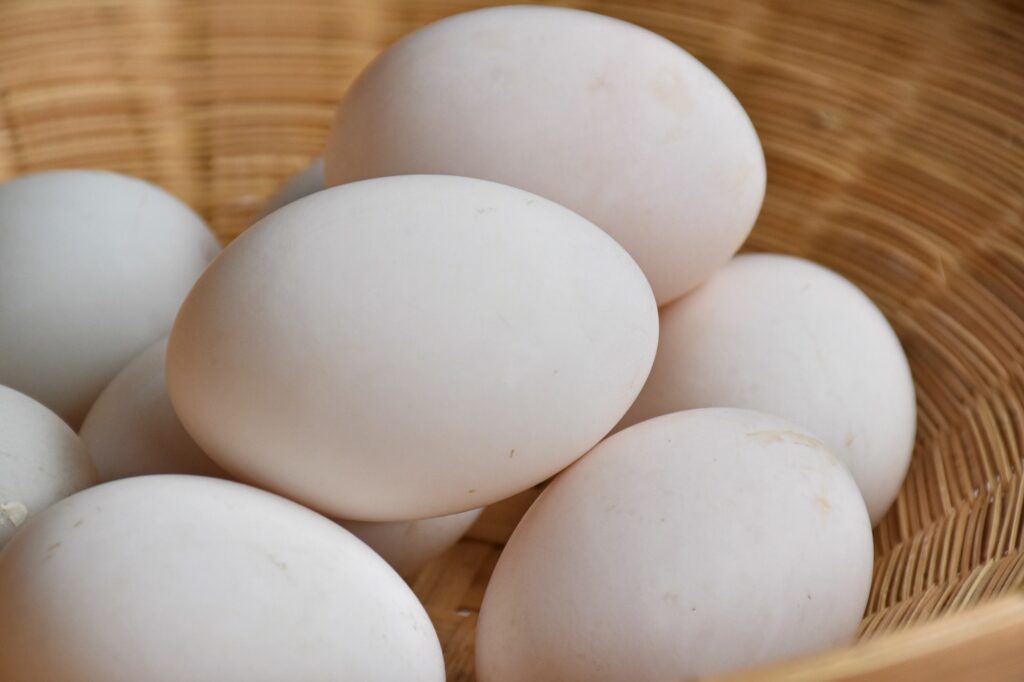19 Fun Facts About Ducks
Ducks are a delight. Their beauty, adaptability, and quirky behaviors make them beloved across the world. From their unique anatomy to their impressive intelligence, ducks continue to capture our imagination.
Whether you’re a wildlife enthusiast or just duck-curious, learning more about these aquatic birds can be both educational and entertaining. Read on for 19 fun facts that will have you appreciating ducks in a whole new way!
Amazing Anatomy
Ducks have a specialized anatomy that helps them thrive in aquatic environments. Here are some of their most unique physical features:
- Special oil: Ducks have an oil gland near their tails that produces an oil they spread over their feathers. This oil makes their feathers waterproof and protects ducks from getting cold and wet.
- Webbed feet: Ducks have webbed feet which helps them paddle and propel through the water. Their webbed toes give them more surface area to push against the water.
- Dense bones: A duck’s bones are solid and dense compared to other birds, which reduces their buoyancy and allows them to dive underwater more easily.
- Built-in strainers: Ducks have comb-like structures called lamellae along their beaks that let them filter food out of water and mud. It’s an built-in strainer!

| Feature | Description |
|---|---|
| Oil Gland | Produces oil that waterproofs feathers |
| Webbed Feet | Help ducks paddle and swim |
| Dense Bones | Allows ducks to dive underwater |
| Lamellae | Comb-like structures that filter food |
Fascinating Behaviors
From dancing mating rituals to deep diving, ducks have some captivating behaviors. Get a glimpse into a day in the life of a duck with these fun facts:
- Dynamic duos: Ducks often form monogamous pairs during breeding season, choosing the healthiest mate they can to pass on their genes.
- Dapper dancers: Male ducks perform elaborate dance moves like head-bobbing, wing-lifting, and tail-shaking to attract the attention of female ducks.
- Nap time: Ducks can close one eye and put half their brain to sleep! This allows them to rest while still watching for predators.
- Deep divers: Some duck species like the Long-tailed Duck can dive to depths of 200 feet underwater when searching for food.
- Nocturnal nesters: Wood Ducks and Mandarin Ducks are “perching ducks” that nest in tree cavities up to 130 feet off the ground.
“Ducks lead complex and fascinating lives. From their flashy mating displays to their ability to dive deep and sleep with half their brain awake, they continue to capture our curiosity.”
Extraordinary Eggs

From their unique shape to their impressive durability, a duck egg is like no other. Here are a few reasons duck eggs are so exceptional:
- More nutritious: Duck eggs have higher levels of nutrients like iron, phosphorus, magnesium, and selenium compared to chicken eggs.
- Richer taste: The higher fat and protein content gives duck eggs a richer, creamier flavor. Chefs and bakers love using them!
- Durable design: A duck egg’s thicker shell and membranes make them less prone to cracking and bacterial contamination compared to chicken eggs.
- Weird shape: While chicken eggs are perfectly oval, duck eggs come in bizarre shapes like pyriforms and rounds. Their irregular shape makes them easily roll in circles rather than away!
Duck eggs offer incredible advantages over chicken eggs in terms of nutrition, taste and resilience. No wonder these unique ovum are a favorite among foodies!
Cool Cognitive Skills
Ducks display some surprisingly advanced intelligence for birds. Check out these neat mental capabilities:
- Social smarts: Ducks establish social hierarchies and can recognize up to 30 other ducks, remembering who their friends and enemies are.
- Spatial awareness: Ducks are capable of advanced spatial reasoning and understanding complex shapes and patterns.
- Adaptive learning: Ducks quickly learn cause-and-effect relationships and can rapidly change their behavior in response to new information.
- Abstract thinking: Ducks can comprehend abstract concepts like object permanence (knowing an object still exists even when hidden from view).
“Ducks are forcing scientists to rethink what birds are capable of when it comes to intelligence and social awareness.”
Key Takeaways
- Ducks have specialized physical features like waterproof feathers and webbed feet that allow them to thrive in aquatic environments.
- From elaborate mating dances to sleeping with half their brain awake, ducks display a variety of fascinating behaviors.
- Duck eggs contain more nutrients and have a richer flavor compared to chicken eggs.
- Ducks possess impressive cognitive capabilities like social intelligence, spatial reasoning, and abstract thinking.
- Ducks continue to surprise and dazzle us with their beauty, adaptability, and intellect.
Frequently Asked Questions
How long do ducks live?
In the wild, most ducks live 5-10 years on average. With proper care and protection from predators, domestic ducks can live 10-15 years.
Why do ducks migrate?
Ducks migrate to reach optimal breeding grounds and find more abundant food sources as seasons change. Some ducks migrate thousands of miles between their summer and winter habitats.
Do ducks mate for life?
Most duck species form monogamous pairs only for breeding season, then find new mates the next year. However, some ducks like Mandarin Ducks mate with the same partner annually for many years.
How do ducks sleep?
Ducks often sleep gathered together in groups called “rafts” floating in sheltered backwaters. They tuck their beaks into their back feathers and rest one leg to stay balanced.
Are ducks herbivores, carnivores or omnivores?
Ducks are omnivores – they eat a varied diet including plants, seeds, insects, small fish, frogs and crustaceans. The diversity of their diet allows them to thrive in different wetland ecosystems.






